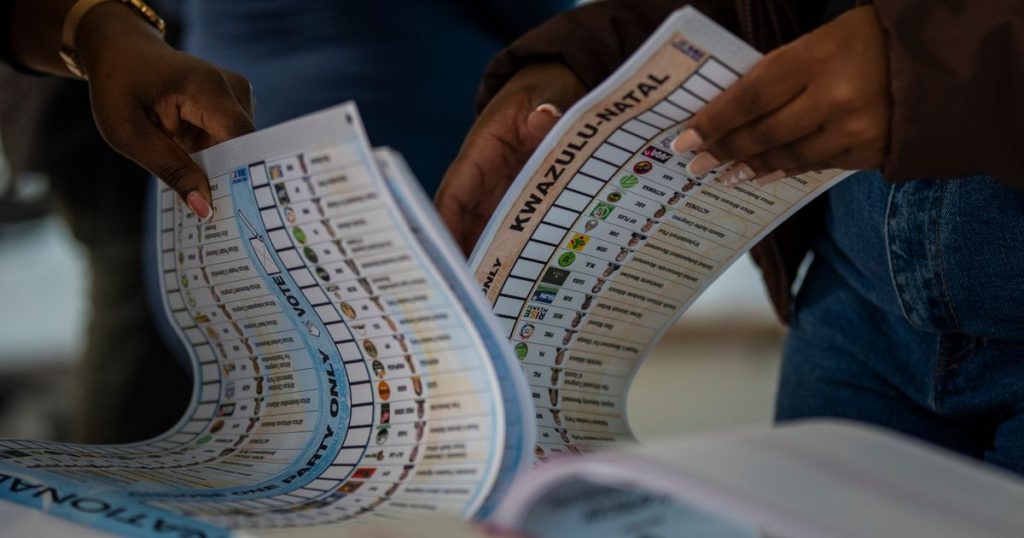The 2024 election results in South Africa saw the African National Congress (ANC) lose its parliamentary majority for the first time since the end of apartheid. With just over 40% of the vote, the ANC will need to seek coalition partners to maintain power and reelect President Cyril Ramaphosa. The Democratic Alliance and MK Party are potential partners, but negotiations are likely to be complex due to differing political ideologies and demands. The outcome of these negotiations will determine the future direction of the country.
The election results have been hailed as a significant breakthrough by opposition parties, signaling a change in South Africa’s political landscape. With widespread poverty, high unemployment rates, and a lack of basic government services, the ANC has faced criticism for its failure to improve living standards for the majority of the population. The need for a coalition government presents an opportunity to address these longstanding issues and work towards a more equitable society.
The ANC’s decline in support highlights growing disillusionment with the party among voters, who have held it accountable for the country’s economic challenges. The rise of smaller parties such as the Democratic Alliance and the MK Party reflects a desire for change and a shift away from the political status quo. The upcoming negotiations will test the ability of these parties to compromise and work together for the greater good of the country.
With more than 50 parties contesting the election, the political landscape in South Africa is diverse and fragmented. The ANC, once a dominant force in the country, must now navigate the complexities of coalition politics to remain in power. The outcome of these negotiations will shape the future of the country and determine its ability to address longstanding social and economic challenges.
The election results mark a turning point in South Africa’s political history, ushering in a new era of coalition politics and potential change. The need for cooperation and compromise among political parties is crucial in order to address the pressing issues facing the country. As negotiations unfold and alliances are formed, the country will move towards a new political path, with the potential for significant reforms and improvements in the lives of its citizens.
The outcome of the 2024 election represents a momentous shift in South Africa’s political landscape, with the ANC losing its parliamentary majority and facing the prospect of forming a coalition government. The need for collaboration and consensus among political parties is essential in order to address the country’s challenges and improve the lives of its citizens. As negotiations progress and alliances are formed, the future of South Africa will be shaped by the decisions made in the coming days and weeks.


